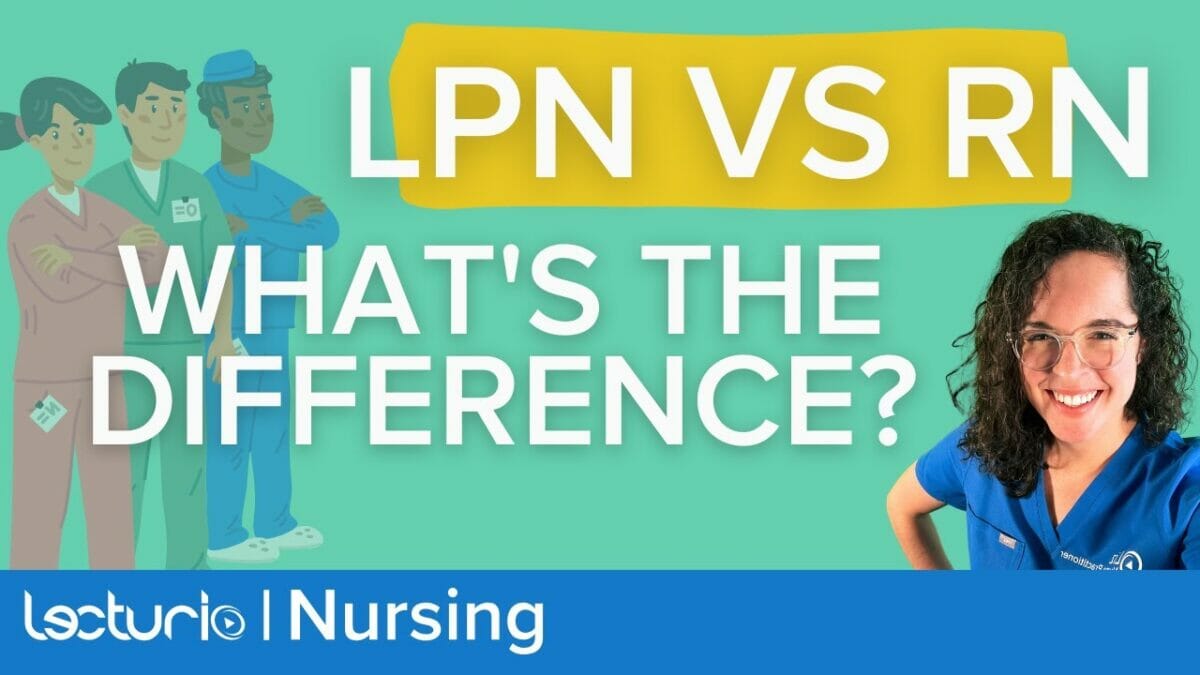What Is an LPN?
LPNs (licensed practical nurses) are valued members of the healthcare team and perform an essential role in providing patient care. LPNs work in various healthcare settings and are under the supervision of RNs (registered nurses) and other licensed professionals.
What is the Difference Between an LPN and RN?
An LPN typically works under the supervision of an RN or other healthcare professionals, such as nurse practitioners, medical doctors, or physician’s assistants. LPNs earn their licensure from a certificate or diploma program and then pass the National Council Licensure Examination for Practical Nurses (NCLEX-PN). RNs require a minimum of an Associate’s Degree and must pass the National Council Licensure Examination for Registered Nurses (NCLEX-RN) to obtain licensure.
Although the education and training differ between LPNs and RNs, the most significant distinction is in each role’s scope of practice. Scope of practice is what a healthcare professional is authorized to do based upon their licensure and credentialing.
What does an RN do
RNs are responsible for developing and implementing care plans, performing physical assessments, and determining needs for continuity of care. This list is not exhaustive; each RN’s daily tasks and responsibilities differ; however, their role goes above and beyond basic nursing duties.
What does an LPN do
LPNs are responsible for providing basic patient care, which may include checking vital signs, administering medications, assisting with activities of daily living (ADLs) like bathing, toileting, and dressing, and escalating issues of concern to supervisory staff.
Where Do LPNs Work?
LPNs work in various healthcare settings, including hospitals, nursing homes, outpatient clinics, and home healthcare agencies. LPNs carry out basic nursing tasks and help to implement the care plan under the supervision of an RN. They are an integral part of the healthcare delivery team.
Hospitals and nursing homes
In hospitals and nursing homes, LPNs will administer medications, assist with activities of daily living, and perform tasks delegated to them by other staff.
LPNs are of particular importance in nursing homes due to the nature of long-term care needs. LPNs provide a constant presence that is reassuring and familiar for residents that may be anxious, agitated, and fearful.
Outpatient clinics
LPNs working in outpatient clinics will check vital signs, update the patient’s record, and report any new medications, concerns, or symptoms to the provider.
Patients with appointments to see their primary care provider or other specialists rarely present with urgent needs that require immediate assessment. The provider, whether a nurse practitioner or a doctor, will perform the bulk of the evaluation and may not require an RN on staff. Still, they will require expertise and assistance from an LPN to manage the patient’s initial needs.
Home health agencies
Home health agencies employ LPNs to assist patients with ADLs at home, check vital signs, administer medications, and follow up as needed with the patient’s primary care provider.
How to Become an LPN (+ Pros and Cons)
Choosing your career path involves much consideration and reflection on what matters most to you. The difference between becoming an LPN or an RN is the length of education, upfront financial investment in education, and the amount of money each profession pays once you are licensed and working.
How long does it take to become a LPN?
The average time to become an LPN is between one and two years. However, if you attend full-time, most certificate or diploma programs can be completed in as little as 12 months. This is a much shorter time than the 2–3 year commitment to earn an associate’s degree in nursing when you factor in pre-requisite college courses.
If time is of the essence, you might find that becoming an LPN first, gaining work experience, and then deciding whether you’d like to return to school to become an RN might be the best route for you. Also, many employers will cover the tuition for LPNs to return to school to gain RN credentialing and licensure.
Tuition costs
LPN programs are cheaper than RN programs. This is because they are a shorter length of time, and the curriculum is less rigorous than that of an RN program.
Another difference between an LPN and RN program is that a diploma or certificate from an LPN school does not equate to a college degree and is, therefore, less expensive.
LPN vs RN salary
You’re familiar with the adage “time is money.” The more time you spend in school, the more money you can expect to earn. This isn’t always true, but it applies when it comes to the difference between LPN and RN. The earning potential for LPNs is substantially lower than their RN counterparts.
In the United States, the largest discrepancy between LPN and RN salaries is in California, with a whopping 90% difference in earnings. Arizona and Wyoming have the most negligible wage difference, with 40% difference between the two roles.
Overview of Tips for Future and New LPNs
- To become an LPN, you must attend a one-year certificate program from a vocational school or community college.
- After completing the certificate program, future LPNs must pass the NCLEX-PN. This standardized examination ensures you are safe to practice and will allow you to obtain licensure in your state.
- Consider the type of work you want to do as an LPN and what kind of facility you see yourself thriving in. It’s also a good idea to research salaries for LPNs and RNs in your state to decide which role is best for you.
- Most importantly, trust yourself as you decide what your career goals are. Many LPNs decide to further their education once they have real-world employment experience. Choose an employer with education benefits that will help you reach your goals.




